Building Tourism Establishments in Iran
Introduction:
In order to build tourism establishments (e.g., hotels, guest houses, etc.) in Iran, foreign investors and companies need to enter the country. This can be done through a variety of means such as registering and establishing a subsidiary company, a branch, or a representative office in Iran. However, each of these options will have its own advantages as well as restrictions. By registering a subsidiary company in Iran, foreign investors can be rewarded the same facilities and advantages which Iranian companies have and pursue their tourism investment through that path.
Also, to build tourism establishments in Iran, the foreign investors can register a branch or a representative office. Based on Article 1 in “the Executive Regulations of the Law of Registering Branches or Representative Offices of Foreign Companies in Iran”, all companies which are being recognized as approved legal entities, can register their branch or representative offices in Iran for the purpose of building tourism establishments, only if there is a form of reciprocity between their original base country and Iran. One example of the activities referred to in clause 2 of this article is “the constructive operations of contracts signed between Iranian citizens and foreign countries”.
For instance, if there is a signed contract between Iranian individuals and foreign companies, the foreign party can register their branch or representative office in Iran to do the operations instated in that contract. Thus, according to this clause, registering branch or representative office in Iran is dependent on existence or signing a contract between the foreign company and Iranian individual or company (publicly or privately owned). An example of this clause is contracting for building a tourism project after signing a contract with Iranian parties.
It should be noted that if a foreign company assigns a representative for operations of their obligations and commitments under clause 2 of this article, the representative is dependent rather than independent (as in clause 1). In other words, the latter will be treated as commercial deputy or attorney assigned by the foreign company. That is why such a representative operates in the form of a “branch”, not a “representative office”.
Regulations related to getting Visa, residence permit, work permit, insurance, and income tax for foreign employees of foreign companies:
One of the most important issues for foreign companies is familiarity with the employees’ affairs and how they will be handled in Iran – Issues like visa regulations, residence (permit), governing rules and laws on work (permits), insurance, tax, etc.
A- Visa:
The very first step for foreign companies to enter Iran’s market is to get visa for their representative(s) so that they start preliminary stages of the company’s investment and activity in Iran. Visas are accessible to foreign citizens, whether they are investors or their employees, in two ways:
- Company visas: These kinds of visas are called company visas because they are requested and used vastly by the Iranian companies to invite their foreign partners. The Iranian party (company or organization) accepts the whole responsibilities of their foreign guest (in regard to their obedience of the laws and regulations of the Islamic Republic of Iran during their stay). This kind of visa can be used for executives and employees of all foreign companies and there are no restrictions on it. This visa is planned for up to 1 month stay and it does not need an exit visa attached when leaving the country.
- The 72-hours commercial visa: this kind of visa has many similarities to company visas especially in that it is also granted after an Iranian entity invites their foreign partners. However, it can be asked as urgently as 48 hours before the arrival of the foreign delegates but it is planned and granted for a 72-hour stay in Iran and cannot be extended at all.
Also, there are a lot of foreign investors who use tourist visas for their first visit to Iran. This kind of visa is the most common visa issued for people around the world since it does not need any special arrangements or documents.
Everything that has been mentioned so far, was about the ways to get visas to enter Iranian territory except for the free trade/industrial zones. These zones have their own specific features and regulations. According to their very core reasons of existence, these zones are supposed to be more flexible in terms of regulations and procedures, and visa regulations are also a function of this principle. These regulations about visa in the free trade/industrial zones can be found in executive bylaw of issuing visas for foreign citizens in free trade/industrial zones of Iran and also in “the regulations for foreign citizens’ travel and stay in free trade/industrial zones”.
When the delegates of the foreign company come to Iran and finalize their decision to work and invest in Iran, they need to establish one or more executive and operational base(s) in Iran and based on what they plan to do, they will need Iranian or non-Iranian human resources. Recruiting people (especially foreign citizens) will engage the company in many regulations. Some of these are outlined and explained below:
B- employment regulations:
Obviously when a foreign company employs their fellow citizens in their homeland, they will act under the laws and jurisdiction of their own country. Here, the assumption is that the foreign company is bringing their foreign employees to Iran to work for them and the contract would be signed back in their homeland or in Iran. This will raise a question: according to the laws of Iran, which country’s laws shall be governing the employment contract and the relations between the employer and the employee? The general principle which answers this question can be found in Article 5 of “Civil Law” of Iran where it clarifies: “all residents in Iran, whether Iranian or non-Iranian MUST abide by the rules of Iran except in cases of exceptions”. Therefore, non-Iranian citizens should carefully consider legal provisions and effects of what Iranian laws have set for legal behaviors such as employment contracts. The first point in employment contract is “competence” which has been noted in article 7 of “Civil Law” of Iran. Thus, if the contract is being signed in Iran, this should be taken into consideration. Also, another important subject in employment contracts is the commitments affected by employment contract which have been outlined in Article 968 of “Civil Law” of Iran.
C- getting work Visa and work permit:
When the foreign company wants to employ foreign worker or employee, they should get work visa and work permit for him/her. For this, the branch or the subsidiary company which is considered as the employer (by the Ministry of Cooperatives, Labor and Social Welfare as the legitimate authority), should lodge a request letter attached with a set of documents. The regulations for foreign citizens work permits apply for this case. After the work visa has been issued and in 1 month after the arrival of the foreign employee in Iran, the employer should send his/her documents to the bureau of foreign citizens’ employment to get the needed work permit.
Also, it should be noted that legal guarantees are in place for the obedience of the regulations governing work permits, their extension or their renewal for the foreign employee in full compliance with “Labor Law”. Finally, it should be noted that the regulations governing work permits for foreign employees, who work in free trade/industrial zones are all instated in “the regulations of Human Resources Employment, Insurance, and Social Security in Free Trade/Industrial Zones of Iran”.
D- getting residence permit:
Foreign employees need to get residence permit in order to stay and work in Iran legally. There are two types of stay permits: temporary and permanent. Usually, foreign employees use temporary ones. The important point is that the process of getting the stay permit should start immediately after the arrival of foreign employee(s) in Iran. In this regard, Article 8 of “the law for Residence and Travel of Foreign Citizens in Iran” should be taken into consideration. In fact, the foreign citizen should refer to the Police Department of the city or place he/she wants to reside and give them his/her documents and get the needed stay permit. According to the usual procedures, the police department issues stay permits in accordance with the work permit (often for one year).
The advantages of getting investment permit in regard to Visa, residence and work permit: Usually, based on current regulations, if the foreign company which is requesting to build tourism establishments in Iran, possess the official investment permits (agreements) to do so, there will be facilities and flexibilities considered for it, in regard to visas, residence and work permits of their foreign employees. According to Article 20 of “the law for encouraging foreign investment in Iran”, related authorities (such as Ministry of Foreign Affairs, The Police Force of Islamic Republic of Iran and the Ministry of Cooperatives, Labor, and Social Welfare) are being urged and obliged to cooperate by all their means in the above-mentioned services and facilities. Also, according to this Article, all related executive authorities are needed to act on reciprocal commitments about issuance of visa, work and stay permits and employment on a case-by-case approach, for all the foreign investors, managers, and employees who are subject of this article and their first dependents (family members), on the basis of ICHHTO request.
E- social security insurance:
The law of social security has obliged all employers to insure their employees in the Social Security Organization of Iran. The question is while the foreign company MUST insure their Iranian employees, do they have to do the same for their foreign employees who are working in Iran and are probably insured back in their homeland? The most important Article which answers this is Article 5 of the Law of Social Security. According to this Article “insurance of foreign employees in Iran is subject to the laws of social security in Iran except for cases mentioned below:
- If there are bilateral or multilateral agreements between the government of the Islamic Republic of Iran and their government(s) on social security issues; in this case, they will be treated as agreed in these agreements.
- When the foreign citizen is partially or completely covered by their country’s social security insurance during their stay in Iran and this has been officially approved by their government in accordance with article 3 of this law; in this case they will be excluded from the regulation set by this law”.
As can be seen, the employers MUST insure foreign employees except in the exceptional cases above. Also, as an example of part “a”, there is such an agreement between the government of Islamic Republic of Iran and the government of the Republic of [South] Korea. Under this agreement which has been signed on May 11th, 1978, Korean citizens who work in Iran are excluded from the law of social security insurance of Iran.
F- income tax for foreign employees:
Foreign employees are subjected to pay taxes to the Iranian government just as Iranian employees do. This has been set in clause 5 of Article 1 of “Direct Taxes Act” which clearly provides: “every non-Iranian individual or entity must pay taxes for their incomes in Iran”. This is about the direct tax of foreign employees of the companies. In the eye of “Direct Taxes Act” and its Article 82, “the income which individuals earn for working for another individual or company, whether it is cash or not, is subject to payment of tax (salary tax)”. According to this law, there is no difference between Iranian and non-Iranian employees.
It should be noted that, those foreign employees who work in free trade/industrial zones of Iran can prosper from the 15-year tax exemption (like Iranian employees), according to Article 13 of “the law for administrating the free trade/industrial zones”.
Barriers to investment in building tourism establishments in Iran:
Investors usually have serious concerns about investing in a foreign country and doing business in them, mainly because most of the investment opportunities in the world are being offered in underdeveloped or developing countries, which are in dire need for foreign direct investments. Regarding the subjects discussed in here which are about investment in tourism industry development, it has been said that there are three common important concerns among investors (which are hospitality and tourism companies and brands):
- ROI (return of investment): The investors need guarantees to collect and outflow their capital and incomes. The government guarantees this.
- Governmental restrictions: The investors believe that the laws and regulations in Iran allow the government (ICHHTO) interfere in their endeavors and create barriers on how they can manage their hotels, establishments, etc. especially “the regulations for establishment, modification, completion, grading and pricing for tourism establishments”, restricts their work.
- The third challenge is the lands’ prices: The foreign investors believe the prices of lands in Tehran and other suitable areas for investment are too high and this makes their investment less profitable.
Parts of these concerns are created out of misinformation or lack of knowledge about the many supportive laws and regulations in this sector. One of the permanent fears of international investors is nationalization, confiscation of properties, and expropriation in the host country. Regarding the approach of many underdeveloped or developing countries had taken especially in 1970s and 1980s to expropriate or confiscate the assets and properties of foreign investors, after their independence or revolutions, the international investors have been skeptical about their presence in such countries ever since. Therefore, in order to persuade foreign investors to put their fears aside and invest in Iran more confidently, “Foreign Investment Promotion and Protection Act” (which is a modern law of its kind) was approved in the Iranian parliament in 2002. According to article 8 of this law:
“Investments subjected to this law will have the same rights, supports and facilities offered to domestic investments”.
Also, it has been outlined in article 9 of this law that:
“Foreign investment will not encounter confiscation or nationalization except for public interests and under legal process, indiscriminately and against paying appropriate and fair compensation for the real value of the investment before expropriation”.
Another concern of the investors in different industrial sections of the investee government (country), (including hospitality and tourism industry) is their concerns about the return of their investments. In order to address this concern and to encourage foreign investors to invest in Iran, there have been some provisions in the form of laws and regulations. According to Article 13 of the above-mentioned law, for example, foreign investors can move their [capital] principal or its related interests to outside Iran, after proceeding legal processes. And according to Article 14 of this law, the profits obtained by the foreign investments are also transferable to foreign countries. Moreover, based on a bill passed and approved by Iran’s parliament, the government of Iran guarantees and supports all foreign investments against non-commercial risks. Other options which can be mentioned in the governmental guarantee include: transferability of shares, equities and profits, issuing 3-year extendable stay and work permit (by Ministry of Foreign Affairs) for investment professionals, etc.
Many investors tend to build luxury hotels in Iran, since there is a proper potentiality for such hotels in Iran. However, it should be noted that the most important issue in this type of investment is buying the needed land which is also another concern of the foreign investors. According to the Constitution of the Islamic Republic of Iran, no foreign individual or entity can own Iranian lands. But this is important to remember that in the law of foreign investment which has been passed by the Iranian parliament (Majlis), it has been mentioned that if a foreign party needs lands in Iran, they should register and establish a company here (in accordance with the relevant regulations and procedures). One hundred percent of the shares of that company can be under foreign ownership but since that company has been registered in Iran, they can buy the needed land for their project(s). In this way, there will be no problem in buying land(s) for investments in Iran. The regulations and legal procedures and what investors need to know about buying lands, shall be presented in another report.
According to MOUs between ICHHTO and municipalities, national organization of lands and housing, and the natural resources organization, it has been agreed to offer facilities under the internal regulations and procedures of each of these authorities to all investors in tourism, handicrafts and other relevant sectors, who want to buy land for their projects. This will help investors to buy the lands on lower prices, compared to conventional real estate market and pay less charge as agreed especially with municipalities. The discount in charges is up to 60 percent and the remaining sum is payable through an installment plan. Other authorities are also being obliged to supply water and electricity for the projects under similar (not identical) conditions.
Another challenge for the investors in Iran’s tourism industry is the [lack of the] free rates system for hotels and other tourist establishments. In fact, at this stage, with “the regulations of establishment, modification, completion, grading and pricing of tourism facilities and supervision thereof”, the owners and managers of such establishments have little power on determining the rates of their services. Realistically speaking, a free rating system for hotels and other establishments, will have deep positive effect on building trust and technical and economic justification for the new Iranian or non-Iranian investors. Free rating system means that hotel managers can offer rates based on their internal policies and with regard to the status of the market at any given time and make their businesses more competitive. Actually, one of the negative factors that has influenced foreign investment delegations in their negotiations on hotel construction projects in Iran is Article 12 of “The Regulations of Establishment, Modification, Completion, Grading and Pricing of Tourism Facilities and Supervision” as well as the note after that:
“Article 12 – in every tourism establishment which has succeeded to get quality standard certificate for tourism services, the rates and charges for rooms, foods, and other services will be suggested by the owner and after the approval of the authorized tourism syndicate and final approval of the director of provincial ICHHTO office, a copy of the finalized rates and charges should be put in the hotel or the establishment so that the customers can see. The rates and charges of the services offered in those establishments whose quality standard certificate for tourism services have not been approved yet, shall be mutually determined by their authorized syndicate and ICHHTO by considering annual inflation rate declared by Central Bank of Iran and then shall be passed on to the owners to execute.
NOTE: the owners and operators of the tourism establishments are obliged to obey and apply the approved and notified rates and charges and if they violate these rates and charges, they will be treated in accordance with Note 1 of Article 17.”
When, for example, an investor decides to build a hotel which can get a minimum of 1000 USD for its rooms from the guests, traders, diplomats, investors, and foreign tourists, and encounter with these imposed restrictions for controlling service rates and charges by government, he/she will wonder and ask himself/herself how many years will it take him/her to collect his provisioned profits and return of investment? For this reason, most of the negotiations with foreign investors and delegations have disappointingly led to postpones and further reviews, because the foreign investor cannot (and does not like to) write a justifiable defendable technical and economic business plan in Iran at least with these low and restricted rates and charges. This is totally unprofessional that the government asks the Iranian or non-Iranian investor to invest and build a hotel but the government assigns them and forces them to follow and execute rates and charges that the government has set and imposed so unfairly.
Although, recent remarks of the head of ICHHTO about moving to a free-market rating system seems promising and is a positive step toward modifying current rating processes. A deed which has been warmly welcomed by investors and it has been told that ICHHTO decision on free rating system in post-JCPOA era during which Iran is witnessing a notable increase in the number of visiting foreign tourists (while having insufficient number of internationally standardized hotels) is admirable and can lead to open a new chapter in the Iranian hospitality and tourism industry in which new investors will come and previous investors will be more appreciated and maintained in the industry.
However, it should be also pointed out that, in another point of view, “the regulations of establishment, modification, completion, grading and pricing of tourism facilities and supervision thereof”, which have been a corrected modification of their previous bylaws, have solved many problems that could have been in the investors’ way and make them change their minds about investment in Iran. In this sense, these regulations have facilitated the conditions for foreign investors and this is a sign that shows the Iranian Government is serious about attracting FDI to tourism industry. According to previous bylaws, the owner or operator of tourism establishment MUST be citizen of the Islamic Republic of Iran or if the applicant of operating permit was a company, the executives of it should have the same condition. In the new regulations, there are no such restrictions anymore.
Bayan Emrooz Law Firm renders services to foreign and Iranian natural and legal entities in the field of formation of tourism establishments. Having an experienced and specialized legal staff, Bayan Emrooz is ready to provide the necessary legal services regarding the Import and Export procedures within Iran.


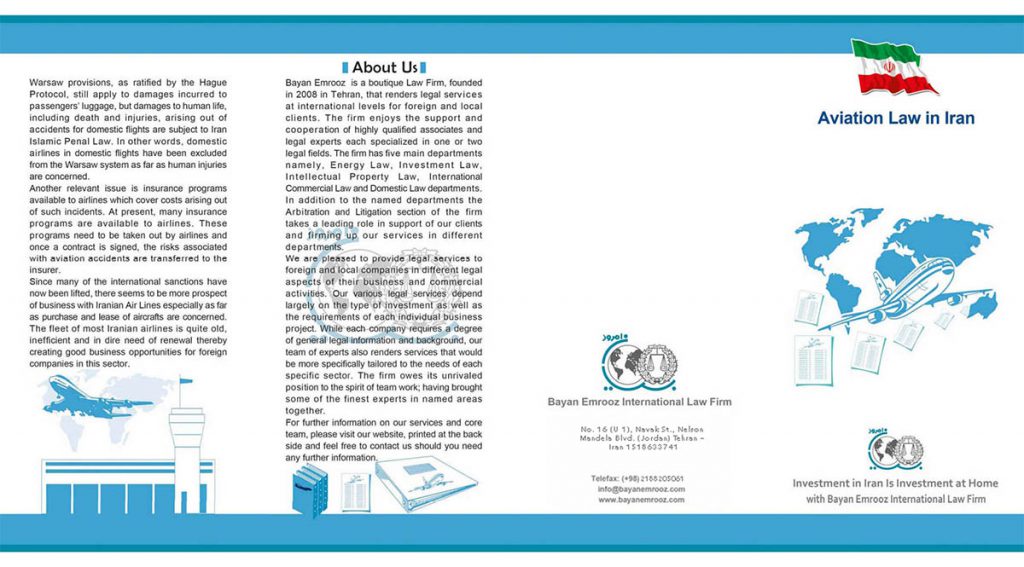
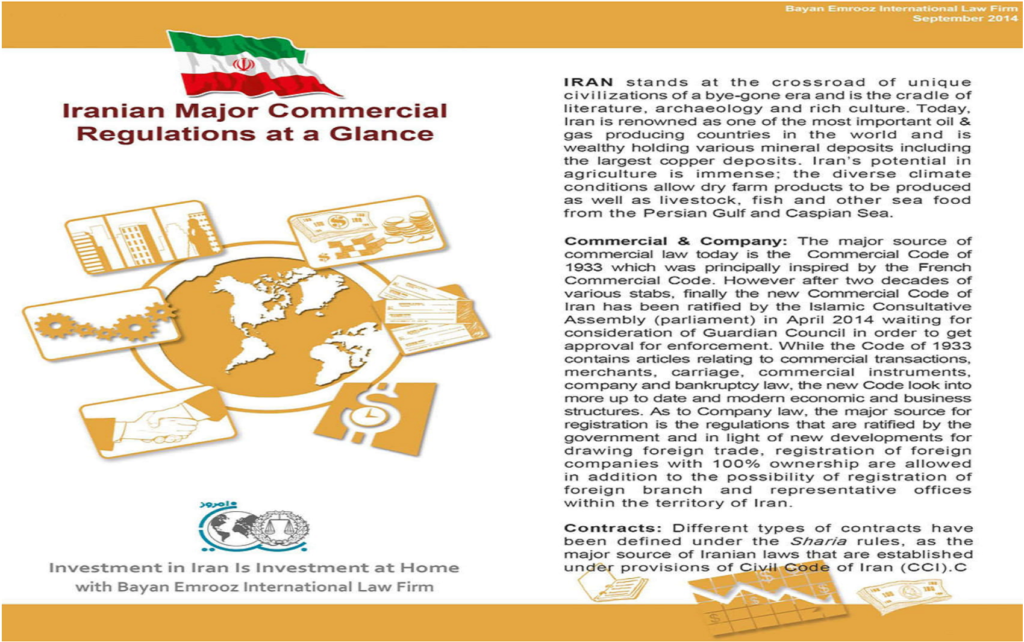
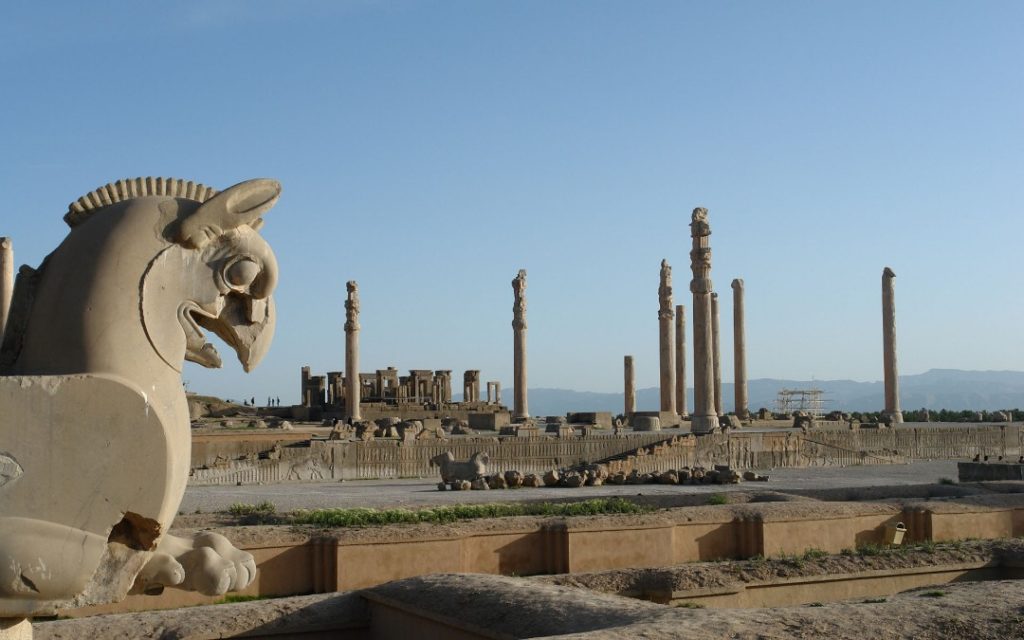
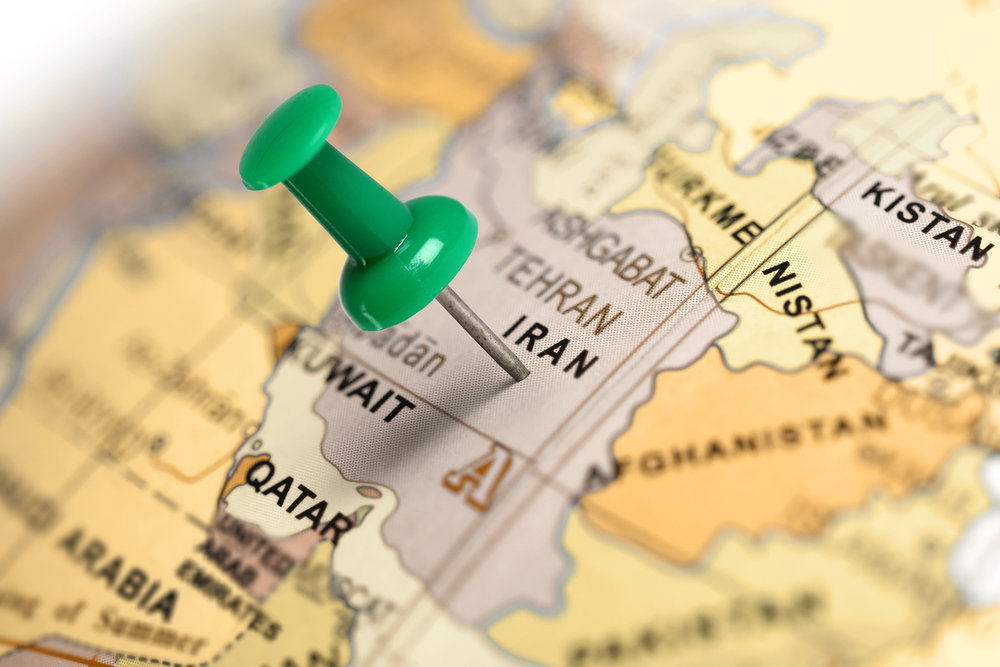
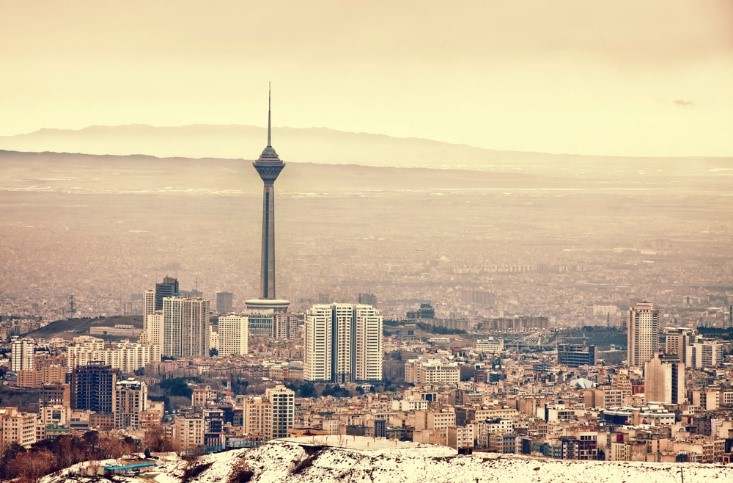

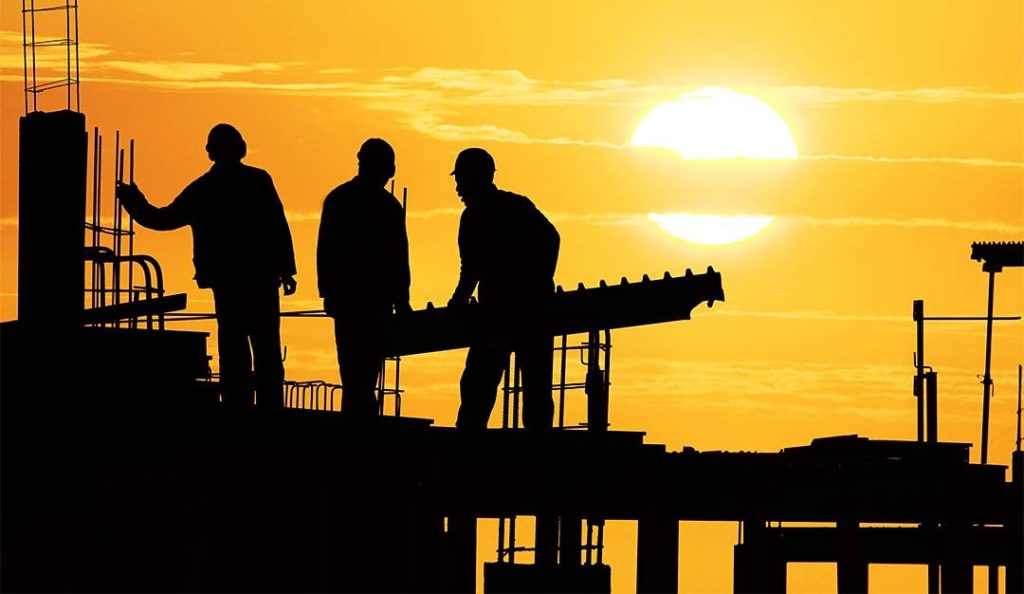





Excellent post. I was checking constantly this blog and I am impressed! Very useful information particularly the last part 🙂 I care for such info a lot. I was seeking this certain information for a long time. Thank you and good luck.